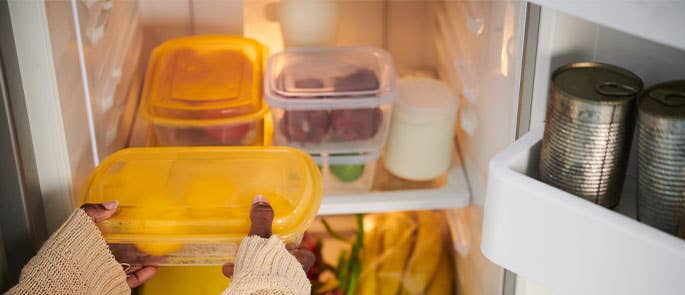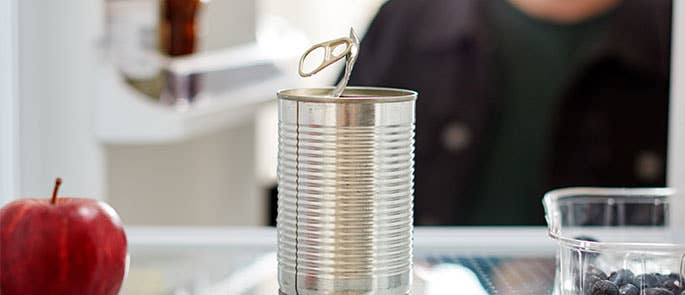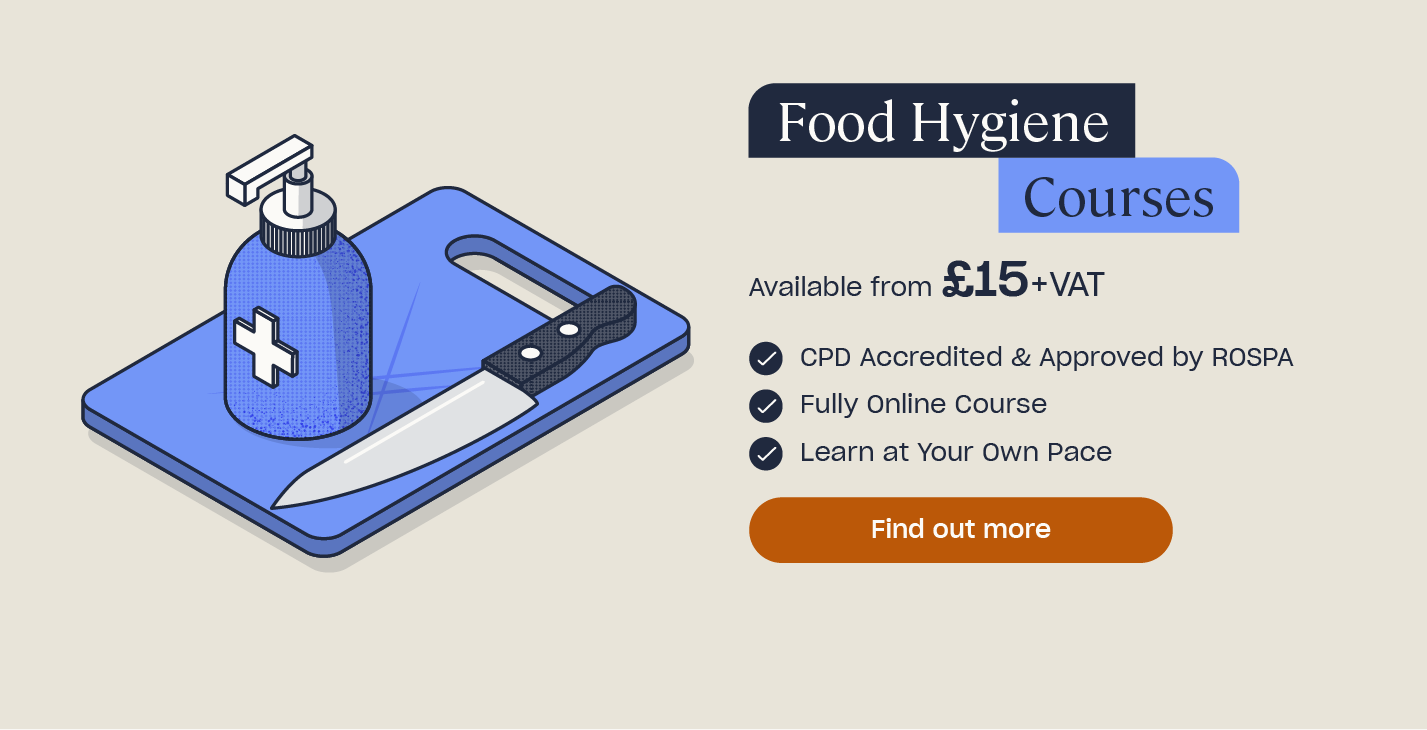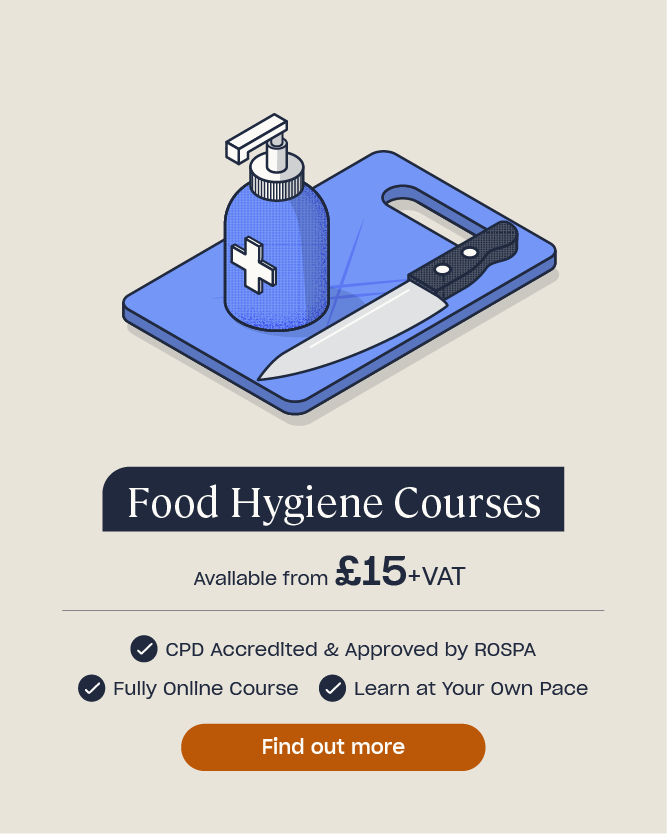Guidance on Storing Leftovers and Partly Opened Foods
Saving leftovers and partly opened foods can help reduce food waste and cut down on costs. If stored incorrectly, these foods can become unsafe to eat and cause food poisoning, which is why proper food storage is so important. In this article, we’ll explain why food storage matters, how to cool and store leftovers safely, what the dates on foods mean and how to store your leftovers and partly opened foods properly.
Why is Proper Food Storage Important?
Storing food properly is essential. Not only does proper food storage keep food fresh and prolong its shelf life, it also helps to reduce food waste, therefore saving you money in the process.
Proper storage of leftovers also protects you from harmful bacteria like listeria, salmonella and E. coli, all of which can cause serious illness if not carefully controlled. Storing leftovers in the fridge or freezer ensures your leftovers don’t enter the temperature danger zone: the temperature range at which bacteria multiply the fastest.
Even if your leftover food looks and smells fine, it can still be unsafe to eat if stored incorrectly. Leaving half a takeaway pizza on the kitchen counter overnight or not covering your leftover bolognese properly before putting it away for later, are both examples of incorrect food storage.
The Dangers of Uncovered Food in the Fridge
When putting leftovers and partly opened foods in the fridge for later, it’s vital that you cover them properly. Where possible, always put your leftovers in a sealed tub or cover tightly with foil, as leaving food uncovered in the fridge allows bacteria to spread and can cause cross-contamination or cross-contact between food products.
If your leftovers contain allergenic ingredients, then covering them before storing is even more important, particularly if someone in your household has a food allergy. This is because uncovered foods can cause cross-contamination, allowing allergens to transfer from one food to another.
Want to Learn More?
Want to learn more about food allergens and the proper storage of allergenic ingredients? Our online Food Allergen Awareness Training covers everything you need to know.
What to Do with Leftovers
If you have leftover food or partly opened food that you want to save for later, be sure to:
- Cool any hot food before putting it in the fridge or freezer, ideally within two hours of cooking or eating. This helps to prevent the food entering the temperature danger zone where bacteria can grow.
- Use sealed containers or wrap food tightly with foil before storing in the fridge or freezer. Open tins, uncovered plates and half-used packets should always be sealed or transferred to proper containers before putting in the fridge or freezer to prevent cross-contact or freezer burn.
- Label leftovers with the date they were cooked or put into storage. Ideally, leftovers in the fridge should be consumed within three days, or within three months if stored in the freezer.
- Use the correct fridge shelves for storing leftovers to ensure consistent cooling and further prevent cross-contamination between cooked and uncooked foods. Avoid storing leftovers in the fridge door as this part of the fridge tends to be the warmest.
- Freeze any leftovers that you won’t eat within a couple of days to save them for later. Frozen leftovers last much longer than refrigerated ones and can easily be defrosted and reheated at a later date.
How Long Do Leftovers Last?
As a general guide:
- Leftovers stored in the fridge will last for 2-3 days.
- Leftovers stored in the freezer will last for up to 3 months.

Understanding Best Before and Use By Dates
All foods come with either a best before or use by date stamped somewhere on them. These dates should always be checked and adhered to as they’re essential for both food quality and safety. It’s also important that you know the difference between them:
Best before dates indicate food quality. Foods are safe to eat after their best before date but may have deteriorated in texture or taste.
Use by dates indicate food safety. Foods should not be eaten after their use by date, even if they look or smell fine, as harmful bacteria could have developed on them.
If you have a partly opened food, it’s a good idea to keep hold of the original packaging so you can refer back to the date on it. Alternatively, write the best before or use by date onto the container you’ve decanted the leftover food into. Once opened, food products usually have a shorter lifespan, so always check the packaging for advice.
Tips for Storing Leftovers and Partly Opened Foods
Below are some top tips for storing leftovers and partly opened foods:
- Store leftovers in clean, airtight containers to prevent moisture loss, odour transfer and cross-contamination.
- Use clips or resealable bags for opened packets of food.
- Keep open sauces and condiments in the fridge door.
- Avoid putting open canned food in the fridge, as the metal will affect the taste of the food.
- Don’t overload the fridge, as cool air needs space to circulate.
- Don’t put hot food directly into the fridge, as this can raise the fridge’s internal temperature, potentially putting other foods at risk.
- Ensure your fridge and freezer are set to the correct temperature to ensure proper food preservation.
- Store your leftovers as single-serve portions, so they’re more convenient to eat later.
- Use up your leftovers before cooking more food to avoid food waste. Following the ‘First In, First Out’ rule ensures older foods are used before newer ones.
- Dry goods (like cereal or pasta) don’t need to be stored in the fridge but should be kept in airtight containers once opened.
- Always safely defrost, thaw and reheat frozen leftovers thoroughly before eating.

Storing leftovers and partly opened foods correctly is essential for food safety and preventing food waste. Proper food storage ensures leftovers remain safe to eat for longer, meaning you can put them away in the fridge to eat at a later date without the worry of food poisoning. Always adhere to the food storage guidelines on the packaging and remember that use by dates should always be followed.
Further Resources:
- Food Hygiene Courses
- Do You Know Which Fridge Shelves You Should Store Your Food On?
- How to Store Food in the Freezer
- How Many Times Can You Reheat Food Safely?
- Can You Reheat This?
- Safe Temperatures for Food Storage: A Free Guide to Cooling and Chilling Times
- How to Store a Cake
- How to Store Bread
- How to Prevent Food Spoilage







